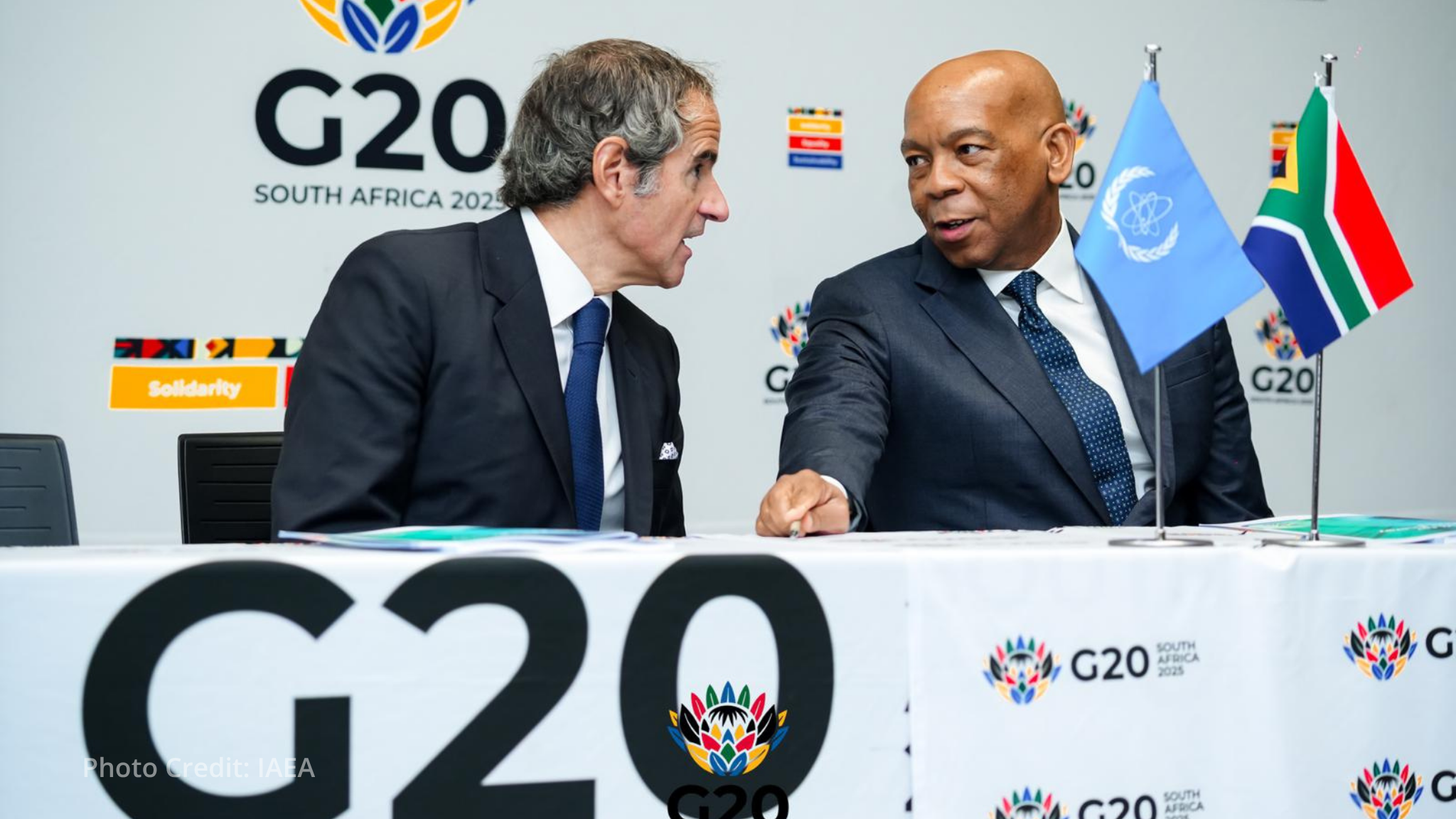Energy leaders held the first-ever high-level G20 nuclear meeting in Durban last week as global projections for nuclear power expansion continue rising, the International Atomic Energy Agency (IAEA) disclosed. South Africa’s Department of Electricity & Energy and IAEA jointly organized the conference, bringing together energy ministers and senior representatives from G20 countries plus invited guests and the International Energy Agency.
IAEA Director General Rafael Mariano Grossi said in his keynote that “nuclear power is increasingly recognized as a source of reliable, safe and affordable energy” across Africa and worldwide. The gathering comes as around half a billion Africans lack electricity access and the continent prepares to house 20% of the world’s population by 2030. Global consensus on boosting nuclear capacity has gained backing from efforts to increase financing access, including support from the World Bank.
Many of the 31 countries currently operating nuclear plants are looking to build new capacity and extend existing reactor lifetimes, while about three dozen newcomer countries are considering or actively preparing nuclear infrastructure. Egypt is set to become Africa’s second nuclear operating country as construction nears completion on its inaugural El Dabaa plant. Bangladesh and Turkey plan to commission their first units within the next few years. South Africa is extending operations at its Koeberg facility. The IAEA participated in G20 for the second consecutive year, building on cooperation that started under Brazil’s presidency last year.
Deputy Minister Samantha Graham-Maré said the IAEA’s new publication on coal-to-nuclear transitions “offers a practical pathway for countries, particularly those with established coal infrastructure, to accelerate their energy transitions while retaining grid stability.” The report explores benefits of repurposing former coal plant sites for reactor deployments, including job creation and improved air quality. It also reviews technical considerations like site selection and using existing infrastructure, plus financing requirements. The publication addresses growing interest in converting coal facilities rather than building nuclear plants from scratch.
Conference speakers from nuclear organizations, IAEA, and the Electric Power Research Institute discussed deployment conditions, financing models, international cooperation, and stakeholder engagement for long-term success. Loyiso Tyabashe, CEO of South African Nuclear Energy Corporation, said “nuclear offers a huge opportunity to industrialize Africa and enable the achievement of its goal of providing a better life for its citizens.” Latest IAEA projections show nuclear generating capacity on the continent could triple by 2030 in the high-case scenario compared with 2024 levels. The same scenario has capacity growing sixteenfold by mid-century.
Globally, 417 nuclear power reactors were operational at the end of 2024 with 377 gigawatts of capacity. IAEA estimates that global nuclear operational capacity will more than double by 2050 in the high-case projection, with small modular reactors expected to play a key role in this expansion. The August 2025 “Outlook for Nuclear Energy in Africa” report outlines nuclear power prospects and what’s needed to meet the continent’s growing energy demand. The G20 meeting closed with a panel discussion on nuclear power’s role in Africa’s energy future, focusing on technologies, strategies, and implementation approaches.

